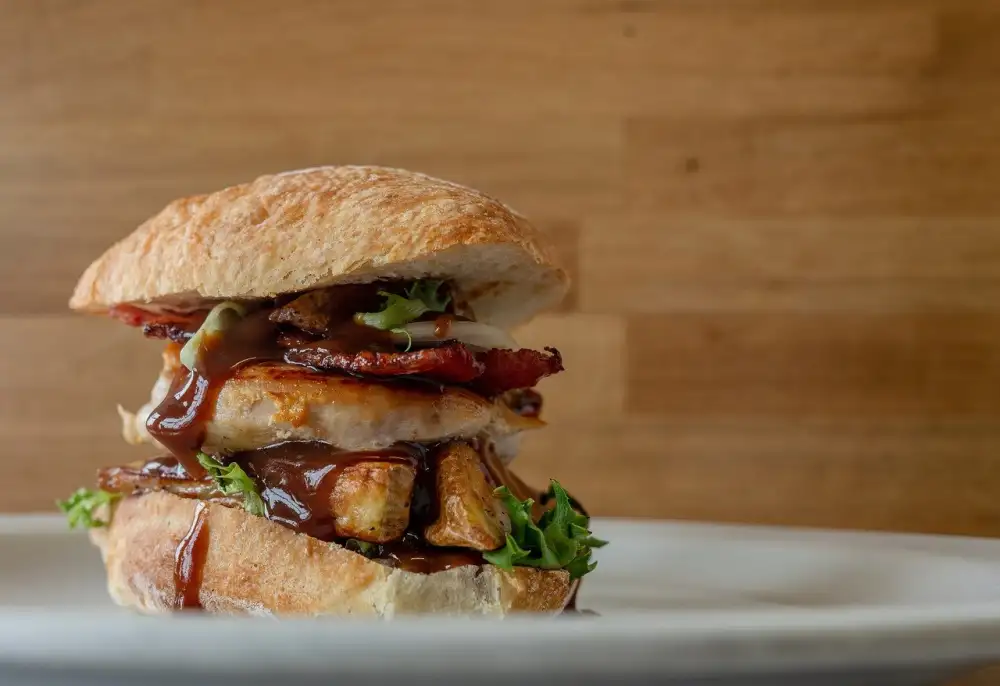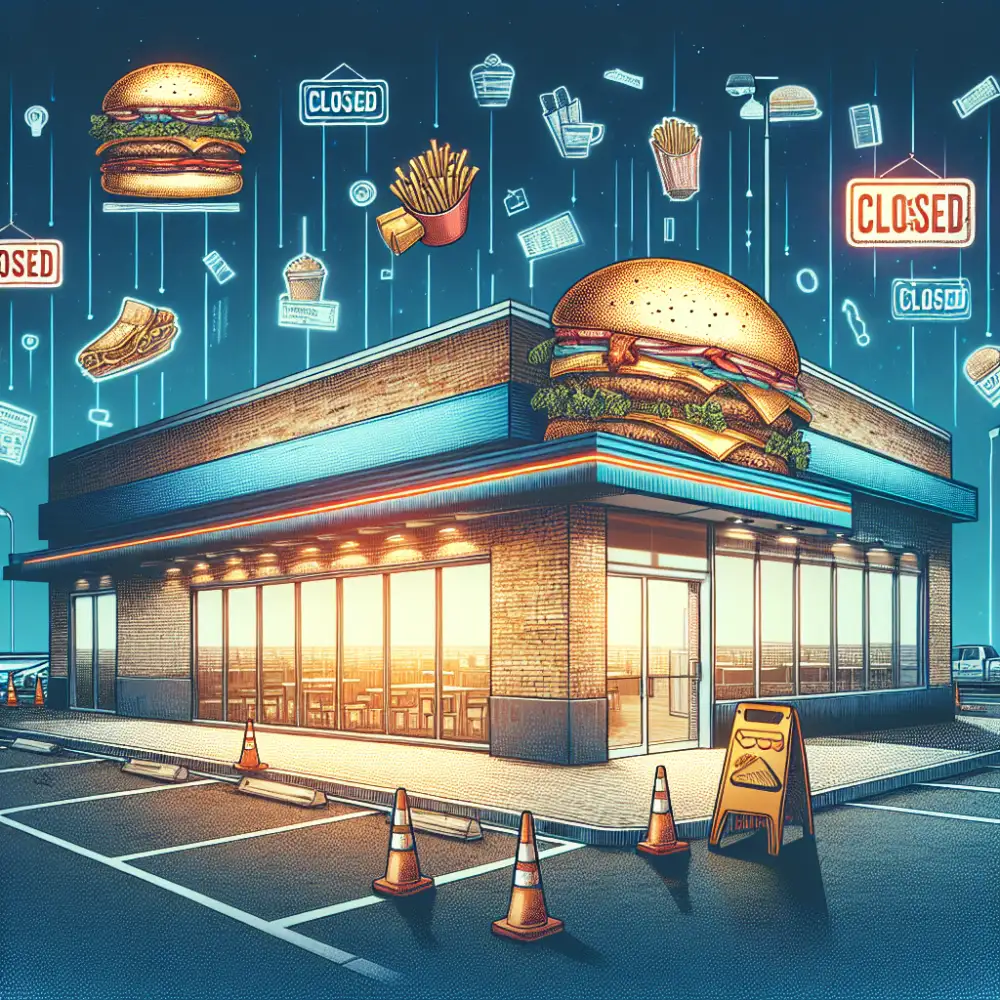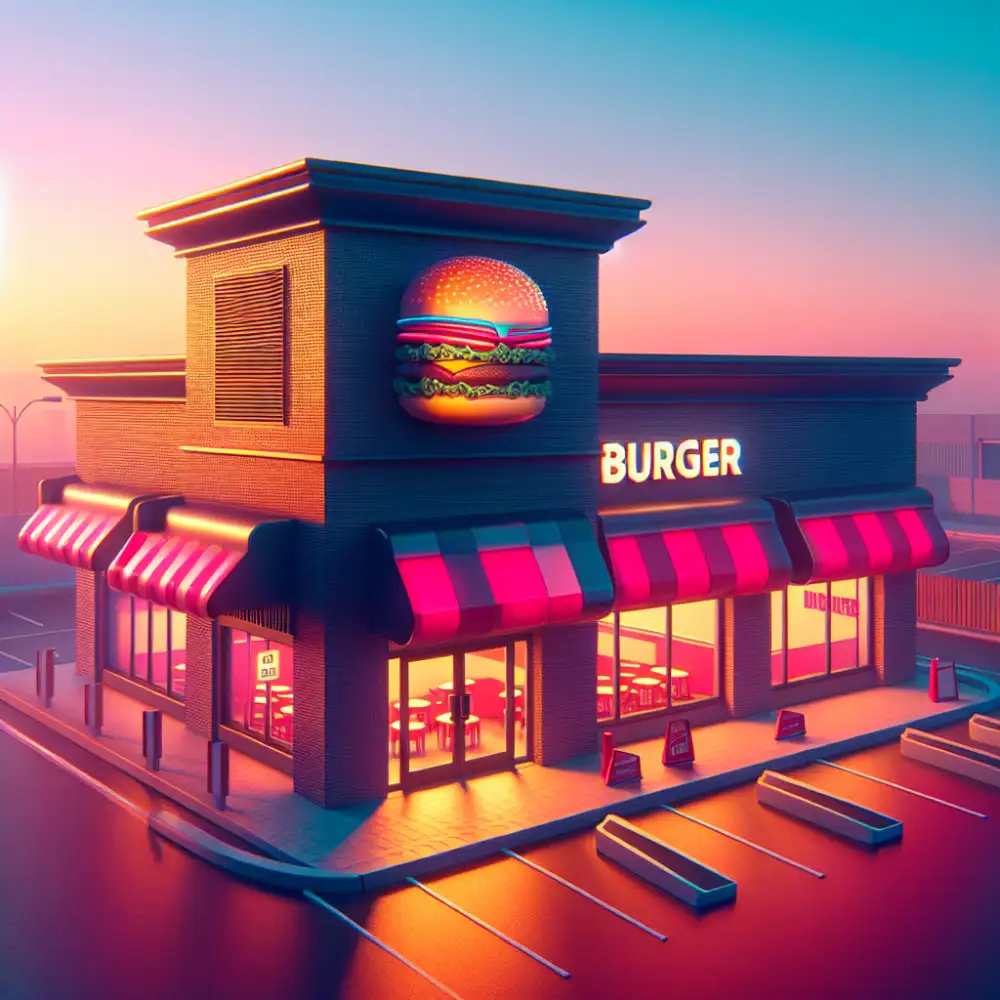Burger King Closures Mounting

Burger King closures
Burger King, the iconic fast-food chain known for its flame-broiled burgers, has been making headlines recently due to a wave of restaurant closures. While the company hasn't announced widespread closures, individual franchisees have shuttered locations across the country, sparking concern among fans of the Whopper.
Several factors contribute to these closures. The ongoing COVID-19 pandemic has significantly impacted the restaurant industry, with many businesses struggling to recover from lockdowns and changing consumer habits. Rising inflation and food costs have also squeezed profit margins, making it challenging for some franchisees to keep their doors open.
Additionally, competition within the fast-food industry remains fierce. Burger King faces stiff competition from rivals like McDonald's and Wendy's, who constantly innovate their menus and offer competitive pricing. Some analysts suggest that Burger King has struggled to keep pace with these changes, potentially contributing to the closure of some locations.
While the recent closures are concerning for Burger King fans, it's important to note that the company remains a major player in the fast-food industry. The brand still boasts thousands of restaurants worldwide and continues to innovate with new menu items and marketing campaigns. Whether Burger King can overcome these challenges and reverse the trend of closures remains to be seen.
Locations impacted
While Burger King remains tight-lipped about the specific locations slated for closure, industry analysts and franchisee statements offer some clues. Areas with a high density of Burger King restaurants, particularly older establishments in need of renovation, are considered likely targets. Additionally, regions experiencing slower economic growth or facing stiff competition from other fast-food chains could see a higher concentration of closures. Franchisees struggling financially or unwilling to invest in upgrades mandated by corporate are also more vulnerable. However, it's important to note that these are just potential indicators, and Burger King has not released an official list of affected locations. Customers are advised to check with their local Burger King restaurant for the most up-to-date information regarding hours of operation and potential closures.
The King's reign is not eternal, and even empires of flame-broiled beef can crumble.
Aaliyah Novak
Reasons for closures
Burger King, like any large restaurant chain, constantly evaluates its store portfolio. Closures are a normal part of the business cycle and can be attributed to a number of factors. Financial performance is a major consideration. If a particular location isn't meeting profitability targets, due to low sales volume or high operating costs, it might be shuttered. Lease agreements ending, especially in high-rent areas, can also lead to closures if renewal terms aren't favorable. Sometimes, broader market shifts play a role. Changes in consumer preferences, increased competition from other restaurants, or even shifts in local demographics can impact a store's viability. Occasionally, corporate restructuring or franchisee-related issues can also contribute to closures. It's important to note that while news of closures might seem alarming, they don't necessarily signal a brand in crisis. Instead, they often represent strategic decisions aimed at ensuring the long-term health and profitability of the overall chain.

Franchisee challenges
Burger King franchisees face a challenging landscape, particularly in light of recent news surrounding restaurant closures. Operating within a large franchise system can present hurdles, even for seasoned business owners. Maintaining brand consistency while adapting to local market demands requires a delicate balance. Franchisees often operate with limited autonomy, adhering to strict guidelines and menu offerings dictated by the franchisor. This can limit their ability to respond swiftly to changing consumer preferences or local competition.
Royalty fees and marketing contributions, while standard in franchising, can cut into already thin profit margins. Franchisees may feel pressure to maintain sales volume to cover these costs, potentially impacting their ability to invest in staff, equipment upgrades, or other improvements. News of restaurant closures, even if isolated, can impact consumer perception and brand loyalty. Franchisees rely heavily on the strength and reputation of the brand, and negative news can make it more challenging to attract and retain customers.
Impact on employees
The closure of Burger King restaurants has a significant impact on employees. Many employees face job losses, leading to financial instability and uncertainty about the future. For some, Burger King might have been their first job or a long-term place of employment, making the closure even more challenging. The sudden loss of income can be particularly difficult for those who rely on their jobs to support themselves and their families. Beyond the financial impact, employees may also experience emotional distress and a sense of loss. The closure of a workplace can disrupt routines, social connections, and a sense of community that employees have built over time. Job searching during closures can be competitive and stressful, adding to the challenges faced by displaced workers.
Customer reactions
The news of Burger King closures has left many loyal customers feeling nostalgic and disappointed. Social media platforms have been abuzz with people sharing their memories of childhood meals, first dates, and late-night cravings satisfied at their local Burger King. Many expressed sadness over losing a familiar and affordable dining option, particularly in areas where Burger King was one of the few fast-food choices available. Some customers voiced concerns about the impact on local communities, especially the loss of jobs for Burger King employees. Others expressed a sense of uncertainty, wondering which locations would be next and what it means for the future of the iconic fast-food chain. Despite the closures, many customers expressed hope that Burger King would be able to overcome its challenges and remain a part of the fast-food landscape for years to come.

Remaining Burger King restaurants
The recent news of Burger King restaurant closures has sparked concern among fans of the iconic fast-food chain. While the exact number of permanent closures remains unclear, it's evident that the company is grappling with challenges. These challenges include rising food costs, increased competition within the fast-food industry, and the lingering economic impacts of recent global events.
Despite these closures, Burger King remains a significant presence in the fast-food landscape. The company has thousands of restaurants still operating globally, serving millions of customers daily. These remaining locations continue to offer the flame-broiled burgers, crispy fries, and other menu items that have made Burger King a household name.
The company is actively adapting to the evolving market. They are focusing on enhancing their digital platforms for online ordering and delivery, streamlining kitchen operations for efficiency, and introducing new menu items to entice customers. While the future of specific locations remains uncertain, Burger King is actively working to stabilize its operations and ensure the brand's longevity.
Future of the brand
The recent wave of Burger King closures across the US has sparked concern about the future of the iconic fast-food chain. While the company has faced challenges in recent years, the extent of these closures has raised questions about its long-term viability. Industry analysts point to several factors contributing to Burger King's struggles, including increased competition, changing consumer preferences, and operational challenges. The rise of fast-casual restaurants and delivery services has put pressure on traditional fast-food chains to innovate and enhance their offerings. Additionally, consumers are increasingly health-conscious, seeking fresher, higher-quality ingredients and customizable options, areas where Burger King has lagged behind competitors. Operational challenges, such as franchisee disputes and difficulties maintaining consistent quality across locations, have also plagued the brand. To secure its future, Burger King must address these challenges head-on. This includes investing in menu innovation, improving the customer experience, and strengthening relationships with franchisees. Whether Burger King can successfully adapt to the evolving fast-food landscape remains to be seen. The coming years will be critical for the brand to prove its relevance and regain its footing in a highly competitive market.


Industry trends
The fast-food industry is constantly evolving, and recent news cycles have been dominated by stories of Burger King restaurant closures. While individual franchisee challenges contribute to some closures, broader industry trends are also at play. Consumers are becoming more discerning in their dining choices, seeking healthier options and unique dining experiences. This shift in consumer preference has put pressure on traditional fast-food chains like Burger King to adapt.
Additionally, the rise of fast-casual restaurants offering fresh, higher-quality ingredients at a slightly higher price point has intensified competition. Labor shortages and rising food costs add another layer of complexity, impacting profitability and making it challenging for some franchisees, especially those in less profitable locations, to sustain operations. While the future of specific Burger King locations remains uncertain, the chain's ability to innovate its menu, enhance the customer experience, and adapt to evolving consumer preferences will be crucial for its long-term success in a competitive market.
Competitor analysis
Burger King's recent store closures have naturally caused industry observers to eye its competitors. While Burger King grapples with the challenges leading to these closures, its rivals are strategically maneuvering to capitalize on any potential market share up for grabs. McDonald's, the perennial leader in the fast-food burger arena, remains a formidable competitor. With its vast resources, global brand recognition, and ongoing menu innovation, McDonald's is well-positioned to absorb any customers migrating from Burger King. Wendy's, known for its sassy marketing and focus on fresh, never-frozen beef, presents another layer of competition. Wendy's has been steadily expanding its footprint and investing in digital initiatives to enhance customer experience, potentially attracting Burger King loyalists seeking alternatives.
Beyond the traditional fast-food giants, Burger King also faces pressure from fast-casual chains like Five Guys and Shake Shack. These establishments emphasize premium ingredients and customizable options, appealing to a more discerning, often younger, demographic that might have previously frequented Burger King. The rise of these "better burger" chains adds another dimension to Burger King's competitive landscape, particularly in areas where store closures might create a void.

Expert opinions
"The recent wave of Burger King closures has restaurant industry analysts buzzing. Some experts point to the increasingly competitive fast-food landscape, with new players and menu innovations constantly emerging. Others suggest that Burger King has struggled to keep pace with evolving consumer tastes, particularly the shift towards healthier and more customizable options. There's also speculation about the impact of rising operational costs, including ingredients, labor, and real estate. Franchisee profitability is a major concern, and some experts believe that Burger King's corporate structure may not be providing adequate support to its franchisees. It's likely a combination of factors contributing to these closures. The fast-food industry is constantly evolving, and only time will tell how Burger King will adapt to these challenges and regain its footing."
Consumer advice
With news of Burger King locations potentially closing, it's understandable to have questions about how this might impact you as a consumer. Here's what you need to know:
| Feature | Burger King | Competitor (e.g., McDonald's) |
|---|---|---|
| Store Closures in 2020 (approx.) | 400 | 250 (estimated) |
| Reason for Closures | Primarily franchisee financial struggles | Underperforming locations, strategic shifts |
Gift Cards: If you have Burger King gift cards, they should be honored at all remaining locations. However, it's always a good idea to use them sooner rather than later in case of any unforeseen circumstances.
Loyalty Programs: If you're part of Burger King's loyalty program, keep an eye out for any communication regarding your points or rewards. The program's future may be impacted by closures, so stay informed.
Alternative Locations: If your go-to Burger King closes, don't worry! Use the Burger King website or app to find other locations near you. You can still satisfy your Whopper cravings.
Customer Service: If you have any questions or concerns, don't hesitate to reach out to Burger King's customer service. They are there to assist you with any issues related to closures or other matters.
Remember, the situation is evolving. Stay informed through official announcements from Burger King and reputable news sources.

Financial implications
Burger King's recent store closures have significant financial implications for both the company and the affected franchisees. For Burger King corporate, closures can lead to a short-term hit to revenue and profits. When a store closes, the company loses out on potential sales and profits generated from that location. Additionally, closures can result in one-time costs such as lease termination fees, severance payments to employees, and asset write-downs.
For franchisees, closures can be even more financially devastating. Franchisees invest significant capital to open and operate a Burger King restaurant, often taking out loans to cover these costs. When a store is forced to close, franchisees not only lose their investment but may also be responsible for repaying any outstanding loans. Closures can also damage the reputation of the franchisee, making it difficult to secure future franchising opportunities.
The financial implications of Burger King's store closures extend beyond the company and its franchisees. Local economies can also be impacted, as closures result in job losses and reduced tax revenue. Additionally, closures can create uncertainty in the commercial real estate market, as landlords struggle to fill vacant properties.
Investment outlook
The recent news of Burger King franchise closures raises concerns about the chain's overall investment outlook. While individual franchisees may face unique challenges, the closures could signal broader headwinds for the fast-food giant. Investors typically look for stability and growth potential, and a string of closures can negatively impact investor confidence. The company's ability to adapt to changing consumer preferences, manage operational costs amid inflation, and compete effectively in a crowded market will be crucial in determining its future success. Potential investors will likely be closely monitoring Burger King's performance in the coming months, paying close attention to metrics like same-store sales, franchisee profitability, and its ability to innovate its menu and customer experience. A clear and effective turnaround strategy will be essential for Burger King to regain the trust of both investors and consumers.
Published: 09. 07. 2024
Category: Food



